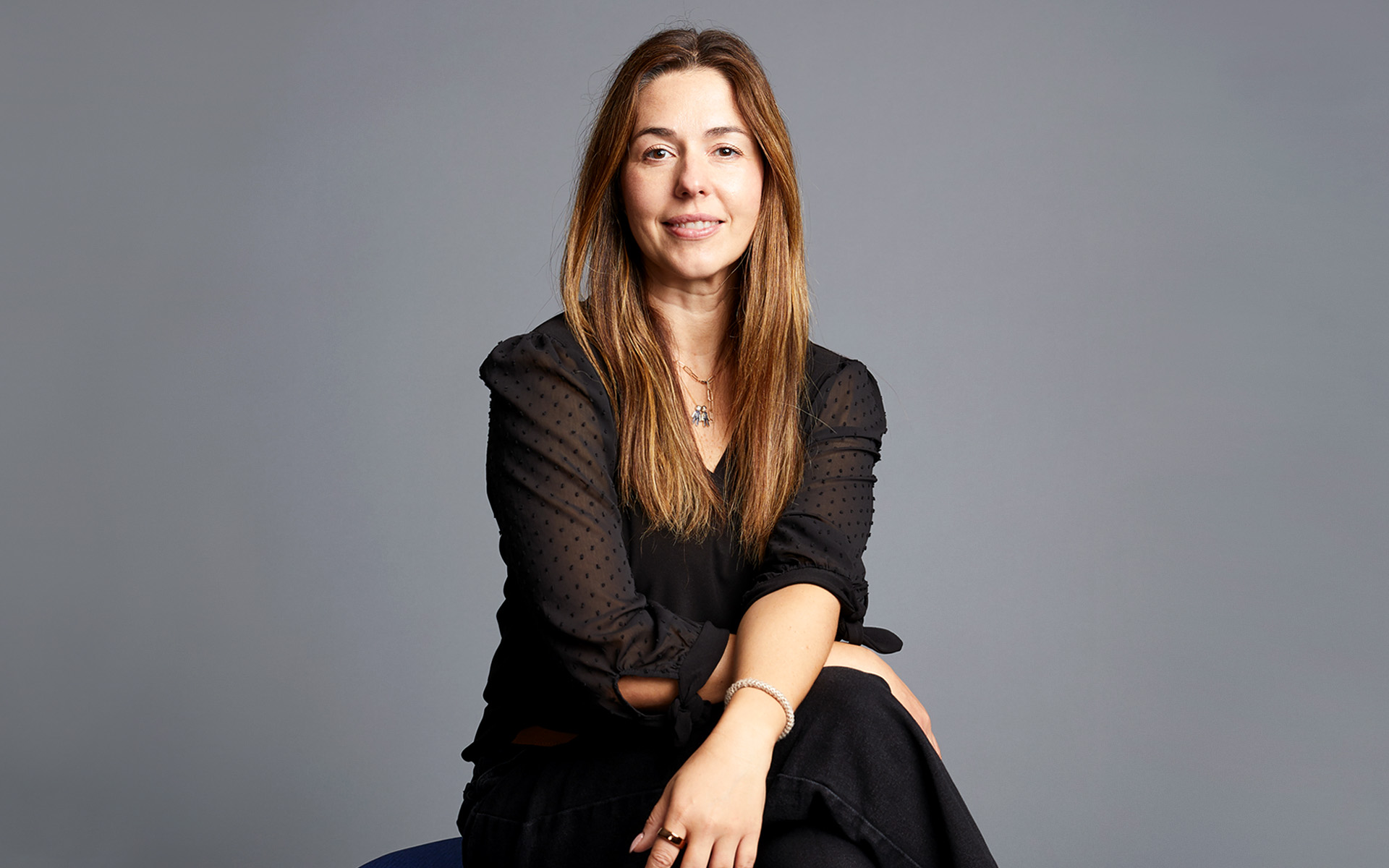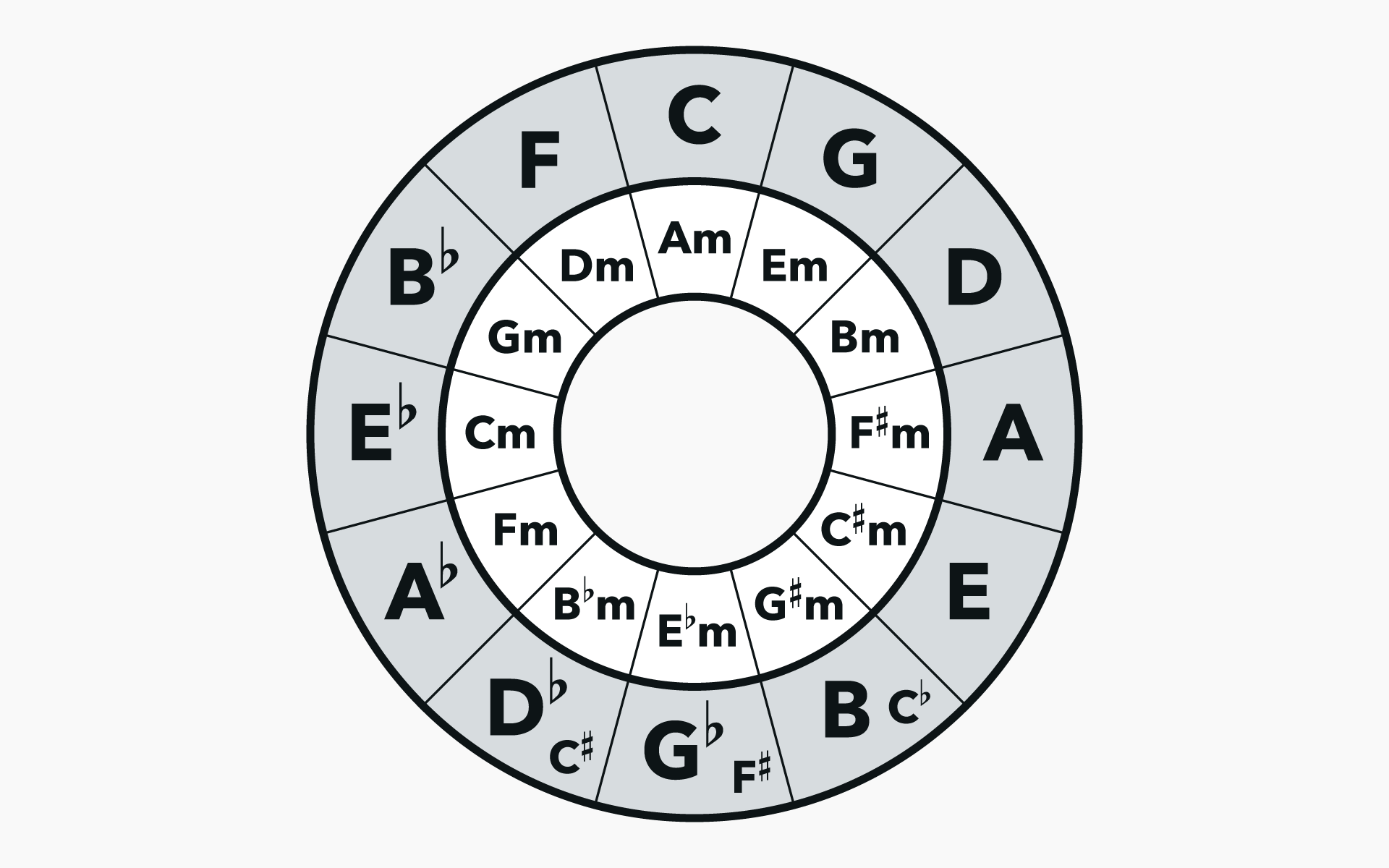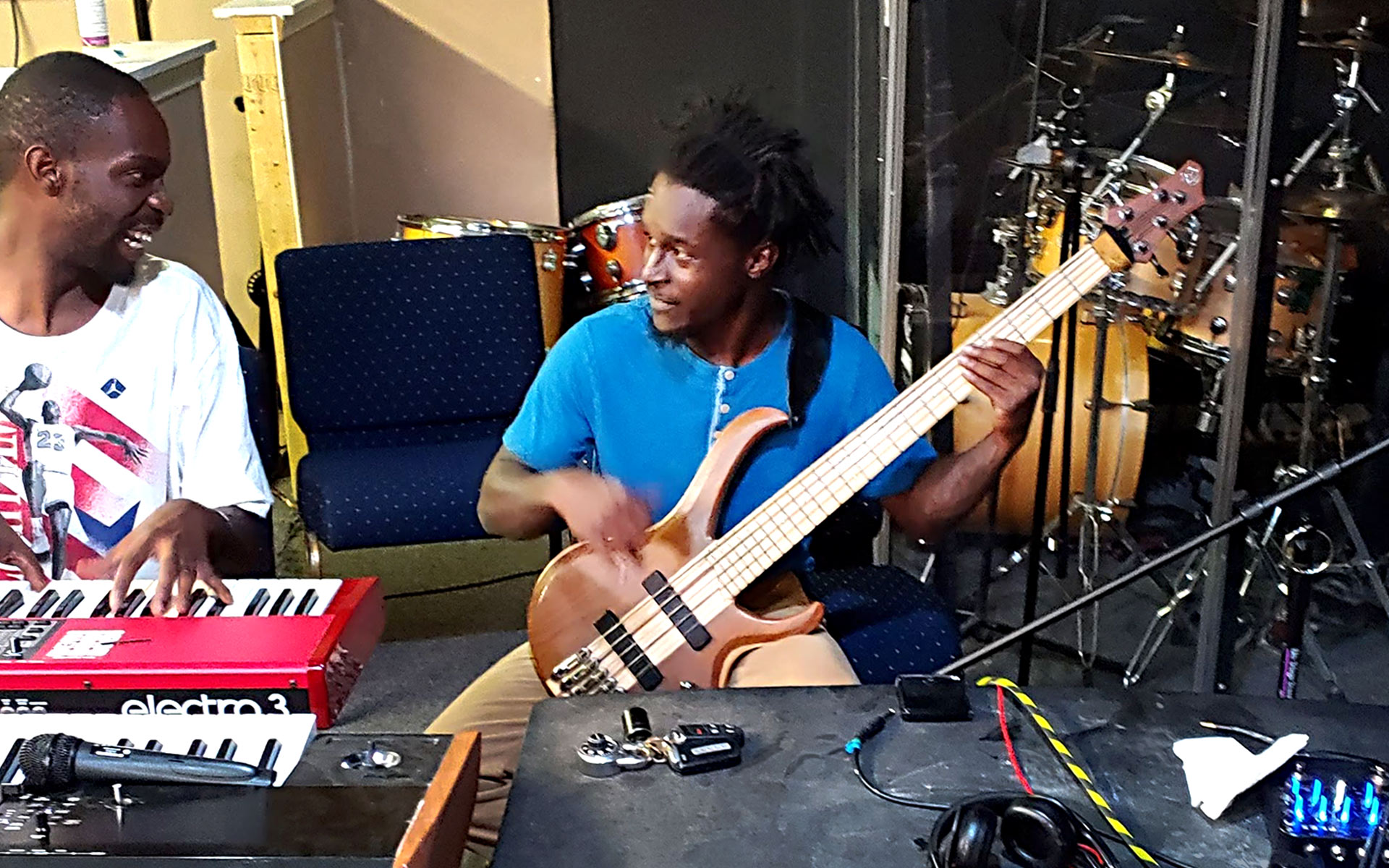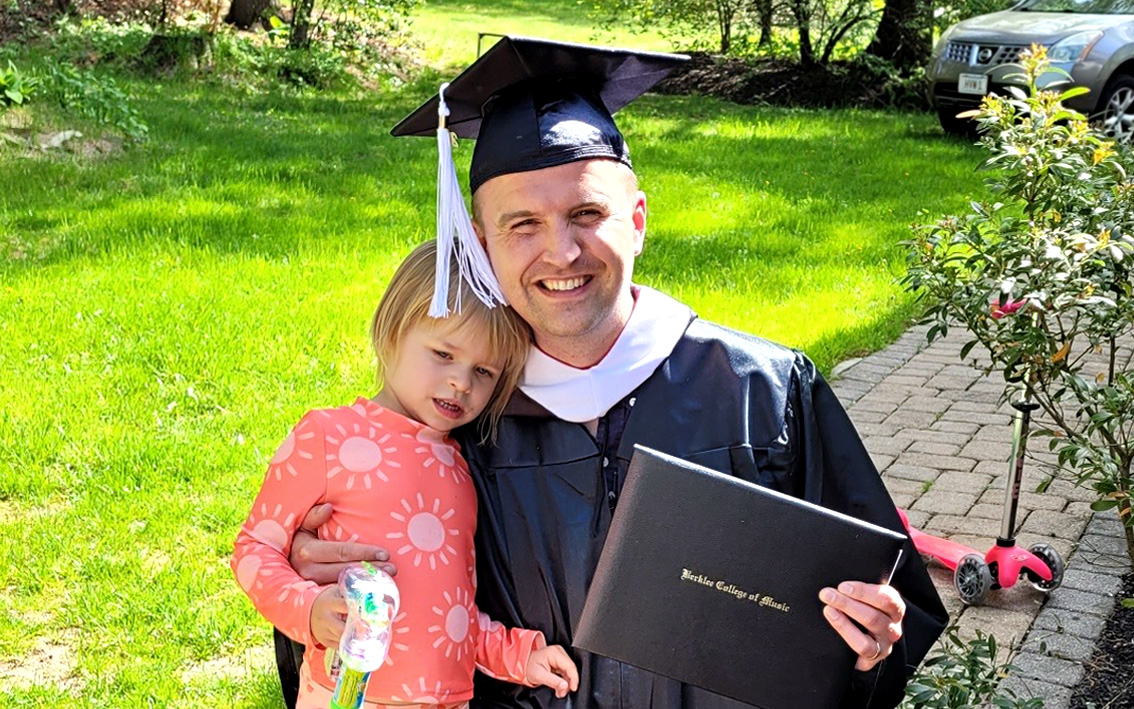When 27-year-old bassist Floyd Foster isn’t taking care of his three children, working towards his certificate at Berklee Online, or teaching music, he is fixing up cars— ’50s and ’60s vintage models, to be exact. Although working as a mechanic and restoring his 1957 Chevy Bel Air is one of his passions, he can’t always enjoy the result.
“I’m dark-skinned with dreads and I drive a nice car to the point where I have gotten the cops called on me just for how loud my car is,” he says. “They get the cops on me, they’ll search me for drugs or stuff like that. All because I’m a black guy with a nice car. Whether I’m cooperating or not: handcuffs. They don’t find no weapons or nothing like that. And then in the end, it was only because I was black.”
With the momentum of the current Black Lives Matter movement, Floyd says that now more than ever is the time to be creating and using music to express ourselves. He hopes by opening up his doors with free music lessons through his nonprofit, the Life Band, he can inspire change.
“Black Lives Matter to me is just a cry for my life, man,” says Floyd. “It’s a cry for everybody around us.”
The Louisiana native’s musical journey began when he joined the Army in 2012 and was stationed in Alaska. During this time, he ran into a drum-piano duo looking for a bass player. So, he taught himself to play, and coaxed the other members to become a trio with him. This started what they now call the Life Band. After about five years of service, he was injured and had to undergo two bilateral hip replacements, which led to his medical retirement. While his injury ended his time in the Army, it started his career as a full-time musician.
“Within the five years I was there, I built relationships with a lot of musicians,” he says. “They’d let you come play even if you didn’t know. They just wanted to hand out knowledge. Sometimes the best way to learn is experience.”
Floyd moved to Hinesville, Georgia where he currently lives with his wife Monique, and their three children Ava Lee (five), Zamar (two), and Marley Rae (one). Hinesville also happens to be just 60 miles north of Brunswick, Georgia, where Ahmaud Arbery was chased down, shot, and killed by two white supremacists while jogging near his home. Arbery’s murder was one of the injustices that led to the reinvigoration of the Black Lives Matter movement. Floyd says that he has already had conversations about racism with his oldest daughter, Ava, because they have experienced it together.
“When the Black Lives Matter movement came along, it wasn’t really a painful thing to talk about,” he says. “It was more ‘Hey, Baby Girl, remember that time you went to the park and these people didn’t want to play with you? This is why this happened to this man.’ It’s not really hard to talk to her about things like that because we already been going through it with her all this time.”
With Floyd now doing music full-time, his move to Hinesville allowed for him and his band to establish themselves and open their group up to the community for bass, drum, voice, piano lessons, jams, collaborations, and music production for free. The Life Band is made up of seven musicians and nearly 60 students. He encourages his students to let out their frustrations through music, as one of the many modes of protest.
“Come and you can protest through your music,” he says. “You can’t beat hate with hate. You need to do it with love. The best way that we feel that you can do it is through music. You can come in here, we can figure out how to write you a song because we actually produce too.”
Just like the role of the bass in a band, Floyd is not necessarily seeking the spotlight, but he is helping to lay the foundation that will allow for change in his community. He is taking on the challenge of not only being one of few bass players and teachers in Hinesville, but also helping people reach their full potential.
“I highly motivate everybody, even musicians that I run into here,” he says. “I try to keep them active in the best way possible. If you can’t find motivation, let me be your motivation.”
Floyd is set to receive his Professional Certificate in Bass Performance this summer and plans to enroll in the Music Production bachelor’s degree program at Berklee Online. He wants to apply what he learns in the program to move the Life Band forward and help more students produce their own music. In the midst of facing many painful realities, Floyd Foster says he is hopeful:
“Open your eyes and see what we really could be if we loved each other and just made friends. … Let’s try to get along and make one friend of the other race before judging everybody. I’m sure if that racist person had a friend of the other color, their opinion of that color would change and they would see, ‘Maybe not all black people are criminals.’”
Follow the Life Band on Instagram at @lifeband31313.






